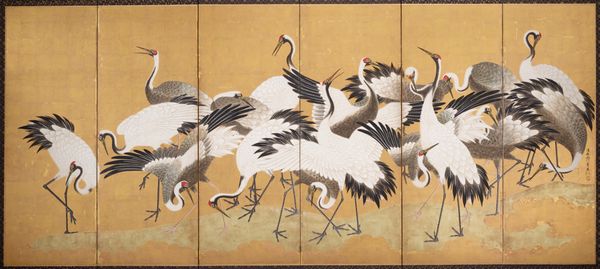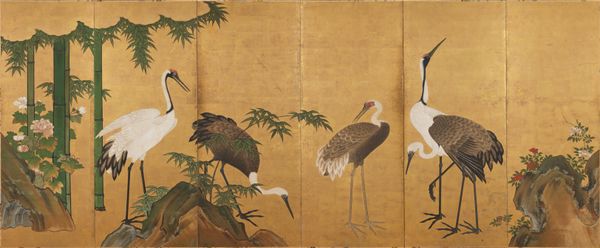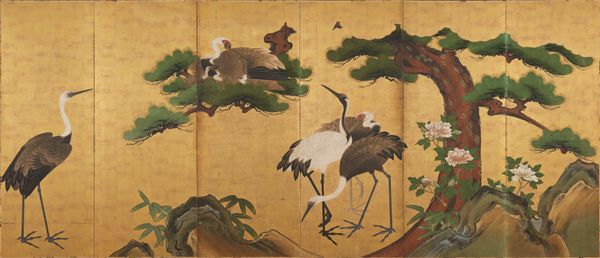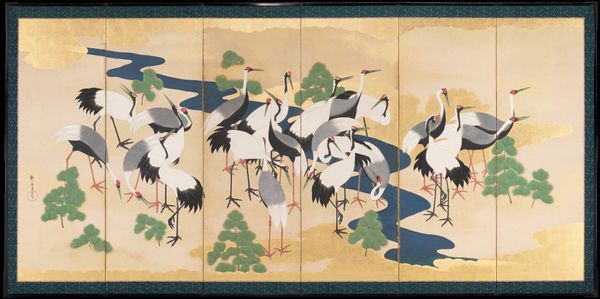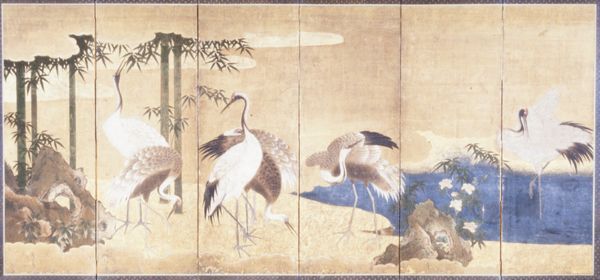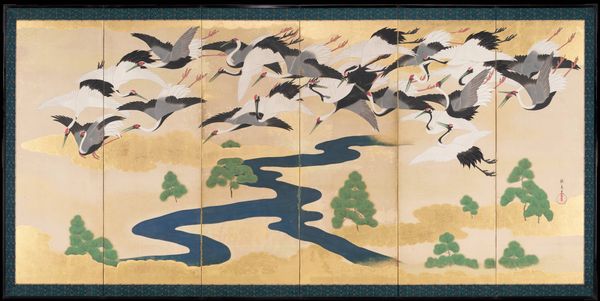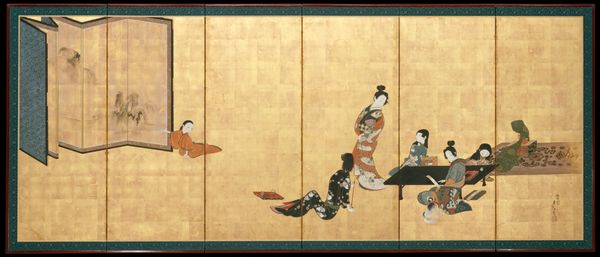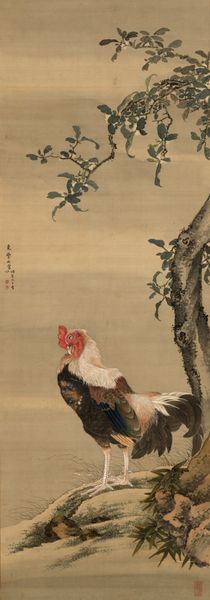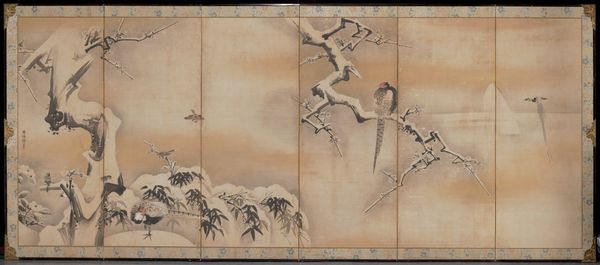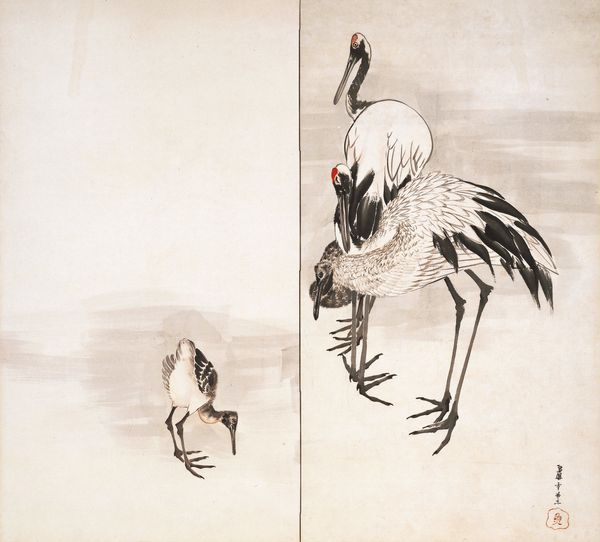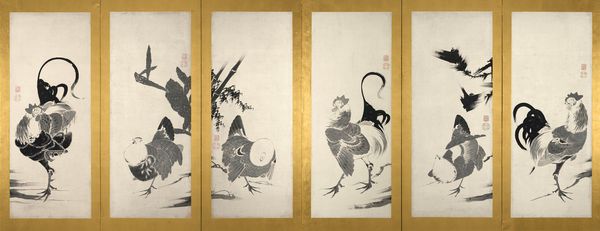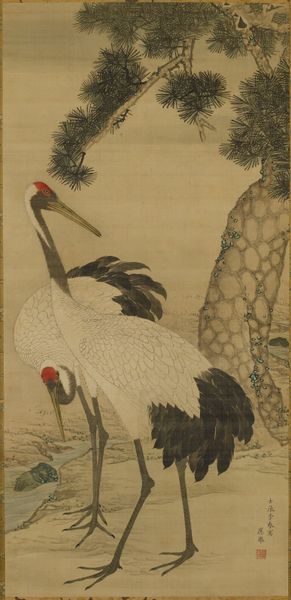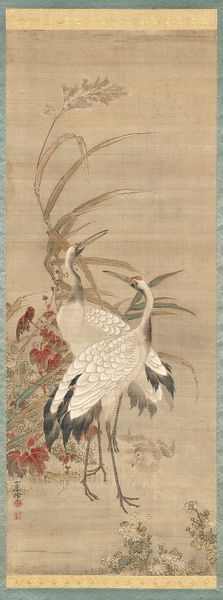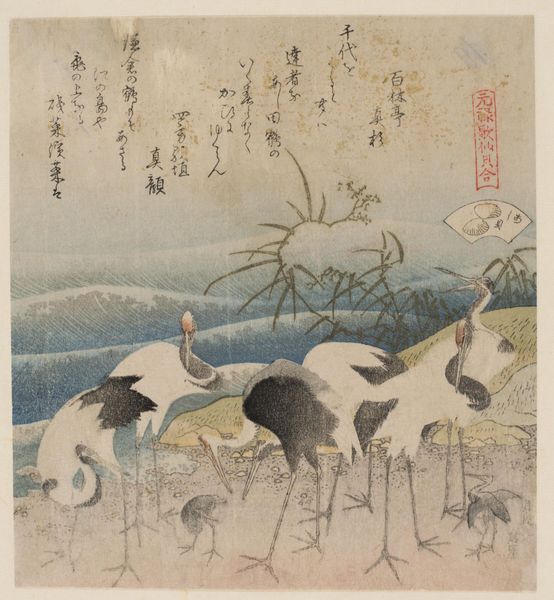![Flock of Cranes [left of a pair] by Ishida Yūtei](/_next/image?url=https%3A%2F%2Fd2w8kbdekdi1gv.cloudfront.net%2FeyJidWNrZXQiOiAiYXJ0ZXJhLWltYWdlcy1idWNrZXQiLCAia2V5IjogImFydHdvcmtzLzY3MzM1ZDgzLTdjYzktNGNlMC1hYjdhLTI1YmU0ZWNjYmFiNy82NzMzNWQ4My03Y2M5LTRjZTAtYWI3YS0yNWJlNGVjY2JhYjdfZnVsbC5qcGciLCAiZWRpdHMiOiB7InJlc2l6ZSI6IHsid2lkdGgiOiAxOTIwLCAiaGVpZ2h0IjogMTkyMCwgImZpdCI6ICJpbnNpZGUifX19&w=3840&q=75)
painting, plein-air, watercolor
#
water colours
#
painting
#
plein-air
#
asian-art
#
landscape
#
ukiyo-e
#
figuration
#
watercolor
Dimensions: 62 1/2 × 139 1/2 in. (158.75 × 354.33 cm) (image)67 1/4 × 145 × 3/4 in. (170.82 × 368.3 × 1.91 cm) (outer frame)
Copyright: Public Domain
Ishida Yūtei painted this six-panel screen with ink and color on gilded paper sometime in the mid-18th century. These elegant cranes embody the Japanese ideal of beauty in the Edo period. At the time, the rising merchant class had become consumers of art, and they were especially drawn to depictions of birds and flowers. The crane in particular was a popular symbol of longevity and good fortune, and it was often used as a decorative motif on screens, kimonos, and other luxury goods. What does it mean to see one of these screens in a museum today? Does it retain some of its aura of luxury? Is its symbolism still potent? Art historians rely on a range of resources to understand the social context of art. By researching the cultural and economic history of the Edo period, we can begin to understand the screen not just as a beautiful object, but as a product of its time.
Comments
minneapolisinstituteofart about 2 years ago
⋮
Ishida Yūtei was the teacher of Maruyama Ōkyo (1733–1795), the famous and influential champion of Western-influenced naturalism in Japan during the 1700s and founder of the Maruyama School. Though trained in the traditional Kano school methods, Yūtei was typical of Kano artists of his time in adopting an eclectic approach to painting. Here, he combined the monumentality and stylization associated with Kano painting with the repetition of a single theme often seen in Rinpa school painting. While Yūtei may have derived the postures of individual cranes from Kano instruction manuals, the idea of combining them all to depict an entire flock presages Ōkyo’s interest in naturalism.
Join the conversation
Join millions of artists and users on Artera today and experience the ultimate creative platform.
